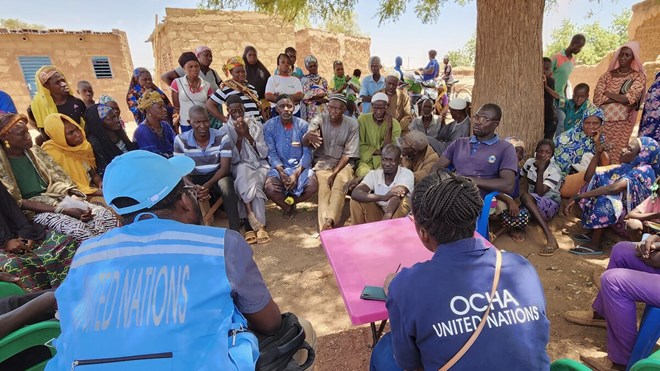
Friday October 18, 2024

FILE PHOTO
MOGADISHU (Xinhua) -- A UN relief agency said Thursday that humanitarian access incidents decreased by 18.6 percent to 57 incidents in the third quarter of the year, compared with 70 in the previous quarter.
The UN Office for the Coordination of Humanitarian Affairs (OCHA) also said three humanitarians lost their lives during the period, though their deaths were not directly related to their status as humanitarian workers, but rather as collateral damage.
"These incidents underscore the complexity of clan dynamics and the dangers humanitarians face in Somalia," OCHA said in its humanitarian update released in Mogadishu, the capital of Somalia.
The UN agency said while the overall trend of incidents remains steady, the decline is mainly attributable to reduced access challenges caused by seasonal inaccessibility due to rains and a drop in "restrictions on or obstruction of conflict-affected people's access to services and assistance," which fell from 17 incidents recorded in the second quarter to just five in the third quarter.
The main constraint this quarter remained interference in the implementation of humanitarian activities, with 22 incidents, matching the number reported in the second quarter.
OCHA said violence against humanitarian personnel and assets was another significant constraint with 15 incidents.
It said 14 incidents were reported for both restrictions of movement of organizations' personnel or goods within the affected country and military operations/ongoing hostilities impeding humanitarian operations.
Two aid workers were killed on July 6 amid escalating clan conflict in Luuq in southern Somalia after violence began in an internally displaced persons' settlement that was torched and escalated afterward.
"One aid worker was killed in a crossfire, while another succumbed to injuries during a medical evacuation to Doolow," OCHA said.
The third aid worker was killed in Qoryooley while on duty and the UN agency said although the deceased was a humanitarian worker, the motive for his killing was linked to local clan dynamics rather than his status as an aid worker.